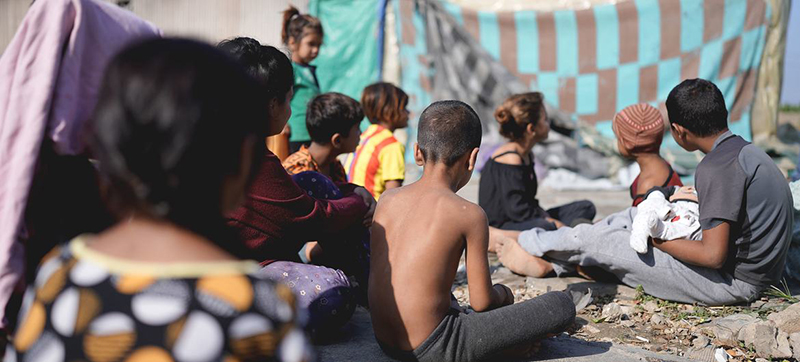 Lebanon
Lebanon
Around 2 million facing food insecurity across Lebanon
New York: Some two million people in Lebanon, including 1.29 million Lebanese residents and 700,000 Syrian refugees, are suffering some form of food insecurity as a result of the multiple crises afflicting the country, with the situation expected to get worse in the months ahead, UN agencies said on Thursday.
Lebanon’s first ever Integrated Food Security Phase Classification (IPC) Acute Food Insecurity Analysis predicts that the situation will deteriorate between January and April this year, with 2.26 million people - 1.46 million Lebanese residents and around 800,000 refugees - expected to be in the "crisis" phase or worse, needing urgent assistance.
The results of the analysis were officially launched by Agriculture Minister Abbas Hajj Hassan, the Food and Agriculture Organization (FAO) Representative in Lebanon, Nora Ourabah Haddad, and World Food Programme (WFP) Country Director in Lebanon, Abdallah Al Wardat.
UN Deputy Special Coordinator for Lebanon Imran Riza and other stakeholders who took part in the process, were also at the launch.
Record level of need
A three-year economic crisis which has seen the currency depreciate heavily, protective food subsidies lifted, and living costs rise dramatically, is preventing families from accessing enough food and other basic needs each day.
“More people than ever before in Lebanon are now dependent on assistance,” said WFP’s Abdallah Al Alwardat. “These findings are deeply troubling and reflect the dire situation that many people in Lebanon are currently facing.”
According to FAO’s Nora Ourabah Haddad, “The IPC results give us a bleak picture of the food security in country. They reconfirm the urgent need to transform the country’s agrifood systems to make them more efficient, more inclusive, more resilient, and more sustainable”.
Integrated approach
She said the study provided an opportunity to highlight the importance of national and international stakeholders coming together, “to provide sustainable support to people most in need through combining humanitarian and development interventions, in an integrated approach.”
The study, conducted by 55 national experts in September, revealed that the district of Akkar has the highest level of acute food insecurity among Lebanese residents, followed by Baabda, Baalbek, and Tripoli.
Among Syrian refugees, Zahle district registers the highest level of acute food insecurity, followed by Baalbek and Akkar.
The classification of food insecurity and malnutrition was conducted using the established IPC protocols, which are developed and implemented worldwide by the IPC Global Partnership.
The Minister of Agriculture in the caretaker government, Dr. Abbas Hajj Hassan, said that the launch provided and opportunity “to discuss together solutions that keep pace with the crises that Lebanon suffers from, in light of the social and economic crises.
‘Realistic vision’ needed
“The aim has always been to create a joint realistic vision for the Lebanese society on the economic and social levels, linking to food security and in order to ensure that it is not compromised, while also ensuring the ability of the Lebanese citizen to secure their daily needs.”
In their press release on the launch, the two UN agencies said that as they expand assistance across Lebanon, “people’s needs also continue to grow due to ongoing local and global crises. These challenges are pushing more people into food insecurity, making it increasingly difficult for them to access adequate food and nutrition.
“We are grateful for the commitment of our donors and call on additional support from the international community to help address this critical situation. Without urgent action, the consequences for the health and well-being of these vulnerable populations will be severe.”
(With UNI inputs)
Support Our Journalism
We cannot do without you.. your contribution supports unbiased journalism
IBNS is not driven by any ism- not wokeism, not racism, not skewed secularism, not hyper right-wing or left liberal ideals, nor by any hardline religious beliefs or hyper nationalism. We want to serve you good old objective news, as they are. We do not judge or preach. We let people decide for themselves. We only try to present factual and well-sourced news.







